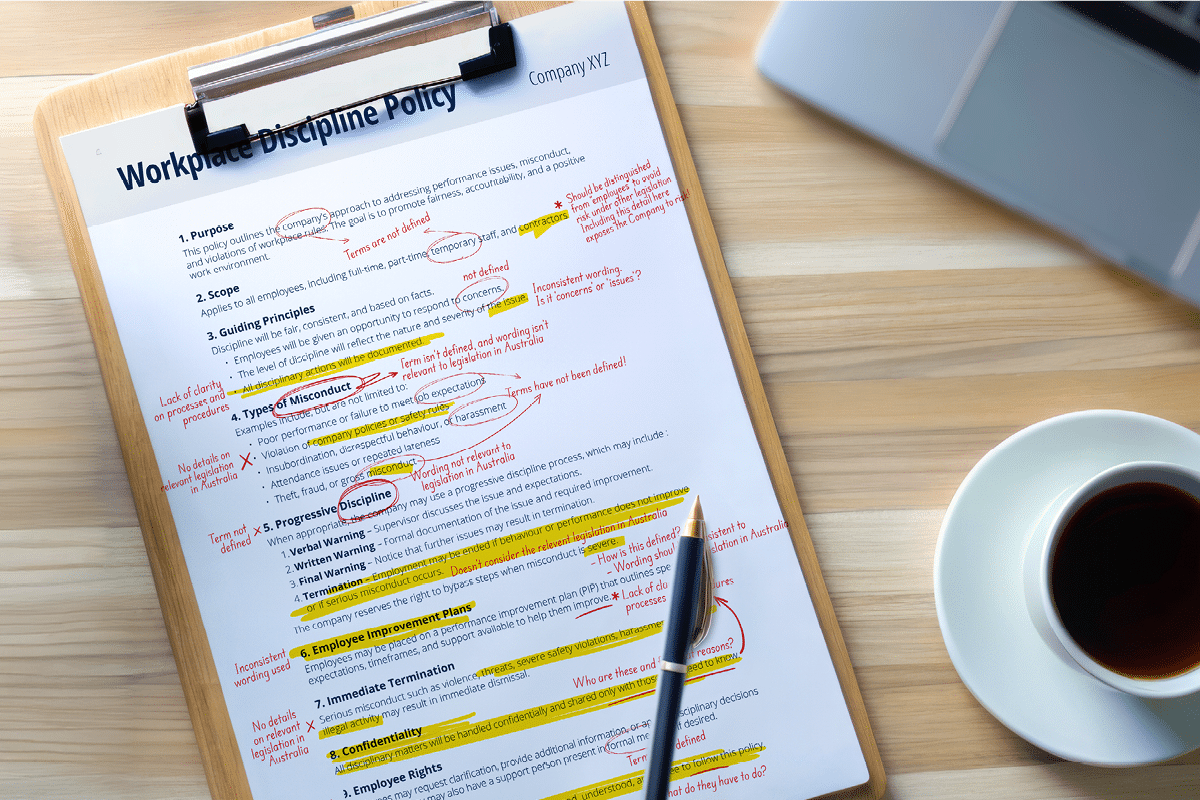In Australia, whether or not parental leave is paid or unpaid depends on your business’ policies, contracts and other entitlements of your staff.
Still, there are mandatory entitlements for unpaid leave available to all eligible employees.
All Australian employees who have worked for an employer for a continuous 12-month period are entitled to take a period of unpaid parental leave for a child’s birth or adoption.
Casuals are also entitled to parental leave if:
- they are employed on a regular basis for at least 12 months;
- if not for the birth or adoption. The employee would have a reasonable expectation of continuing employment by the employer on a regular and systematic basis.
Eligible employees are entitled to up to 12 months of unpaid leave.
Where any employee is taking leave, the employee can request a further 12 months unpaid parental leave before the end of the first period of unpaid parental leave.
The leave can only be taken because of:
- the birth of a child to the employee or the employee’s spouse or de facto partner; or
- the placement of a child under 16 with the employee for adoption.
- the employee has or will have a responsibility for the care of the child.
Where the employee takes unpaid parental leave, the leave must be taken in a single continuous period.
If the employee is pregnant with the child, the parental leave may start up to six weeks before the expected date of birth or earlier by agreement between the employer and employee. If not, the leave must start at the birth or placement of a child.
Also, the employee can’t extend the leave beyond 24 months after the birth of the child.
Employees on unpaid parental leave may request an extension, depending on how much leave they have already taken.
Any extension must be mutually agreed between the employee and employer.
- Employees who initially planned to take less than 12 months of unpaid parental leave can extend their leave to a total of up to 12 months.
- Employees who have already taken 12 months of unpaid parental leave can request an additional period of up to 12 months, bringing the total leave to a maximum of 24 months from the child’s date of birth or placement.
Employers must respond to extension requests in writing within 21 days. If a request is refused, the employer must outline the dispute resolution and arbitration process available through the Fair Work Commission.
An employee has the right to request an additional unpaid parental leave period beyond the original 12 months leave.
The employee must give at least four weeks’ notice, in writing, to the employer before their original parental leave ends.
The employer must then respond in writing within 21 days of receiving the request, stating whether the request is approved or, if refused, why.
The additional leave can run for a further period of up to 12 months immediately following the end of the available parental leave period.
However, where both the employee and their spouse/de facto partner take unpaid parental leave, the maximum entitlement to unpaid parental leave is 24 months in total (i.e. not each).
An employee is not entitled to extend the period of unpaid parental leave beyond 24 months from the date of birth or placement of the child.
The employer may only refuse the extension if there are reasonable business grounds to do so. The employer must set out the business grounds for refusal and explain how those grounds apply to the request.
An employer may request that an employee, who intends on working the six weeks up until the expected date of birth, provide a medical certificate that states whether the employee:
- is fit for work
- may be at risk if they continue in their position.
The employer may request medical evidence and potentially require an employee take unpaid parental leave if:
- the employee is unfit for work;
- if there is a significant risk to the employee if they continue in their position; or
- the employee fails to provide the requested evidence confirming they are fit for work.
An employee is required to provide their employer with written notice prior to taking unpaid parental leave. The employee must:
- provide notice at least ao weeks before starting the period of leave (if 10 weeks is not practicable, as soon as is practicable),
- outline the start and end date of the leave.
Four weeks before the leave’s start date, the employee must confirm the intended start and end date (unless it is not practicable to do so).
An employer may require that an employee who has given notice of the taking of unpaid parental leave provide evidence that would satisfy a reasonable person that the leave is birth or adoption related.
For example, the employer may ask the staff member to provide a medical certificate outlining baby’s due date.
Unpaid special maternity leave
Unpaid special parental leave is available when an employee is pregnant and has a pregnancy-related illness or the pregnancy ends after a period of gestation of at least 12 weeks otherwise than by the birth of a living child, and the child is not stillborn.
An employee taking special parental leave must provide their employer with notice as soon as reasonably practicable and the notice must specify the period, or expected period, of the leave.
As with unpaid parental leave, the employer may require the employee to provide evidence that would satisfy a reasonable person, that the employee is suffering from a pregnancy-related illness or that the pregnancy has ended.
Special unpaid parental leave, taken while pregnant, doesn’t reduce a female employee’s entitlement to 12 months unpaid parental leave.
Transfer to safe job or no safe job leave
If a pregnant employee has a medical certificate stating they are fit for work, but not in their current role, then the employer must transfer them to a safe job until the risk has passed, if it is reasonable to do so.
If there is no appropriate safe job available, the employee is entitled to take “no safe job leave” for the risk period.
If the employee is transferred to a safe job, they must be paid for the duration of time worked at their full rate of pay – the same rate as their original position.
If no appropriate safe job is available, and the employee has an entitlement to take unpaid parental leave, they are placed on “no safe job leave” and must be paid their usual wage during the risk period.
If they don’t have an entitlement to parental leave, the “no safe job leave” will be unpaid.
Consultation regarding workplace changes
While an employee is on a period of unpaid parental leave, the employer must inform the employee of any decisions that may significantly affect an employee’s status, pay or location of their job and meet any consultation obligations contained in the relevant industrial instrument.
Guarantee of return to work
An employee, who goes on parental leave, is entitled to return to the same position they had before leaving.
If that position no longer exists, the employer must offer the employee a suitable alternative that is nearest in status and remuneration to the former position.
Unpaid pre-adoption leave
An employee is entitled to up to two days of unpaid pre-adoption leave to attend interviews or examinations they need to take to facilitate the adoption.
This leave may be taken as a single continuous period of up to two days or in separate periods as agreed with the employer.
An employee is not entitled to this period of unpaid pre-adoption leave where the employee could instead take some other form of leave, and the employer has directed the employee to take that particular form of leave.
An employee must give notice of this leave to the employer as soon as practicable.
The employer may request that they provide evidence that would satisfy a reasonable person that the leave is being used as its intended.
Keeping in touch days
Employees on unpaid parental leave can perform short periods of paid work in preparation for their return to work.
These “keeping in touch days” don’t affect their right to unpaid parental leave.
The relevant legislation can be found here.
Keeping in touch days can be an opportunity to reassimilate the employees into the work environment, including, but not limited to:
- allowing the employee to meet new colleagues;
- training the employee on new systems and;
- updating the employee on work health and safety (WHS) procedures.
Keeping in touch days are capped at ten days and require both employee and employer consent.
The keeping in touch days do not extend the period of the employee’s unpaid parental leave.
On the employee’s request, they may be used after 14 days from the child’s birth, or six weeks (or 42 days) after the child’s birth via a mutual agreement between the employer and employee.
Keeping in touch days are paid at the rate stipulated by the employee’s contract or industrial instrument.
If you’re requiring further information about parental leave, please contact CCIWA’s Employee Relations Helpline on 08 9365 7660 or email [email protected]m










